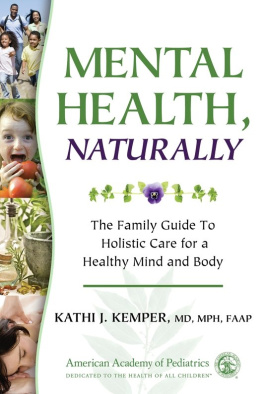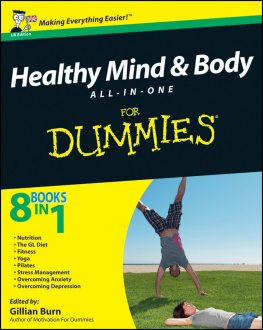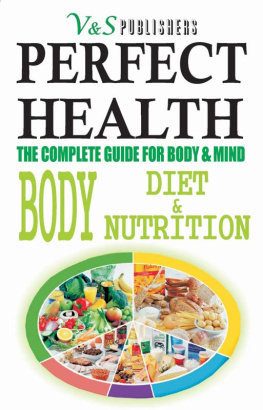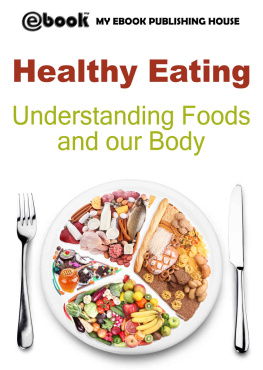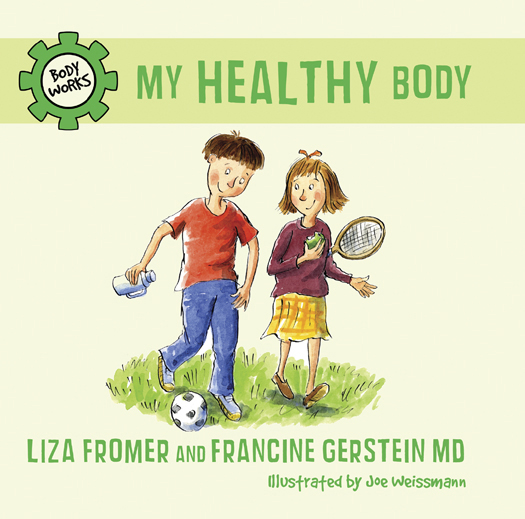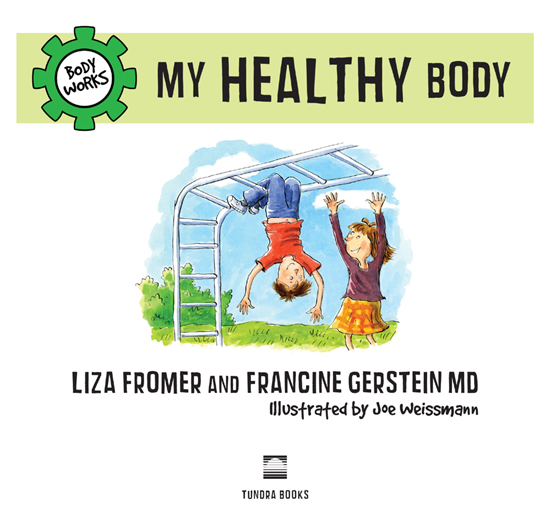Text copyright 2012 by Liza Fromer and Francine Gerstein MD
Illustrations copyright 2012 by Joe Weissmann
Published in Canada by Tundra Books, a Division of Random House of Canada Limited One Toronto Street, Suite 300, Toronto, Ontario M5C 2V6
Published in the United States by Tundra Books of Northern New York, P.O. Box 1030, Plattsburgh, New York 12901
Library of Congress Control Number: 2011938774
All rights reserved. The use of any part of this publication reproduced, transmitted in any form or by any means, electronic, mechanical, photocopying, recording, or otherwise, or stored in a retrieval system, without the prior written consent of the publisher or, in case of photocopying or other reprographic copying, a licence from the Canadian Copyright Licensing Agency is an infringement of the copyright law.
Library and Archives Canada Cataloguing in Publication
Fromer, Liza
My healthy body / Liza Fromer and Francine Gerstein; illustrated by Joe Weissmann.
(Body works)
eISBN: 978-1-77049-370-4
1. Health Juvenile literature. 2. Hygiene Juvenile literature. 3. Human body Juvenile literature. 4. Human physiology Juvenile literature.
I. Weissmann, Joe, 1947- II. Gerstein, Francine III. Title. IV. Series: Body works (Toronto, Ont.)
RA777.F76 2012 j613 C2011-906505-3
We acknowledge the financial support of the Government of Canada through the Canada Book Fund and that of the Government of Ontario through the Ontario Media Development Corporations Ontario Book Initiative. We further acknowledge the support of the Canada Council for the Arts and the Ontario Arts Council for our publishing program.

v3.1
For Samson and Ever, may you always be curious
L.F.
For my three special boys, Parnicus, Potaten, and The Jonester
F.G.
For Judy and Mathieu
J.W.
Also available in this Body Works series by Liza Fromer and Francine Gerstein MD, illustrated by Joe Weissmann
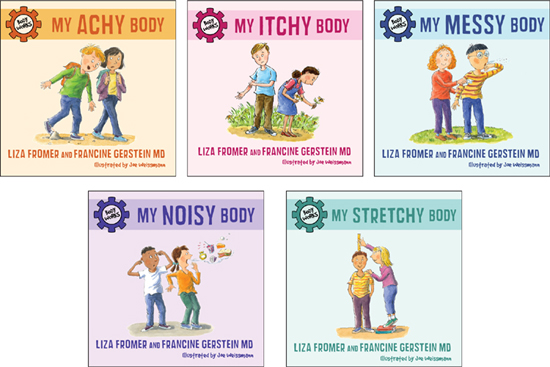
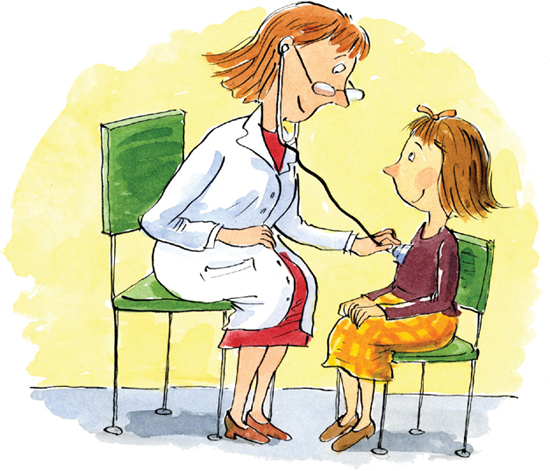
Authors Note
The information in this book is to help you understand your body and learn why it works the way it does.
Its important that you see your family doctor at least once each year. If youre worried about your health or think you might be sick, speak to an adult and see your doctor.
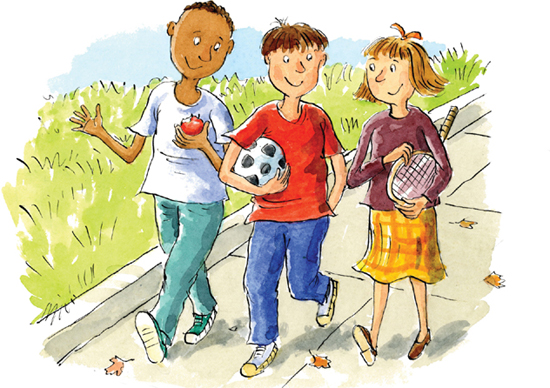
You probably come across the word healthy a lot: you might see it on your cereal box, hear it on TV, or talk about it with your teachers and parents. But what does healthy mean? Something that is healthy is something that is good for you whether its a nutritious snack, or a good relationship with your friends and family, or getting a good nights sleep. And you play a big part in making sure you are healthy through the choices you make every single day.
By the way
When you see MT in this book, it stands for Medical Term.
Contents
SLEEP
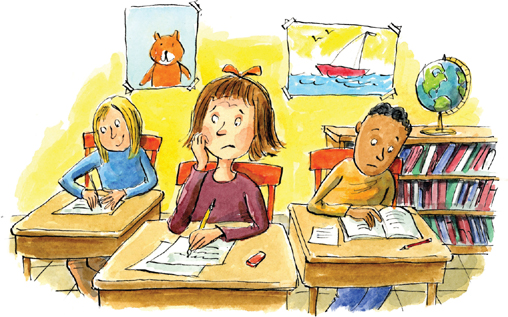
Everybody sleeps, although some people sleep more than others. Sleep helps your body grow and stay healthy. It lets you rest your muscles and restore physical energy so you can jump and climb the next day. Sleep is also a time for resting and restoring mental energy, so that you pay attention and learn new things when youre awake.
If you dont get enough sleep, you may not be able to do math calculations as quickly or think of creative ideas. You may make more mistakes on tests or be less coordinated in gym class or the playground. You might also be extra cranky!

Bats sleep hanging upside down. Horses, zebras, and giraffes sleep standing up.
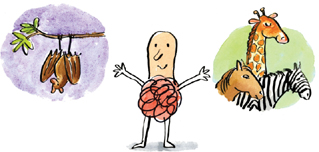
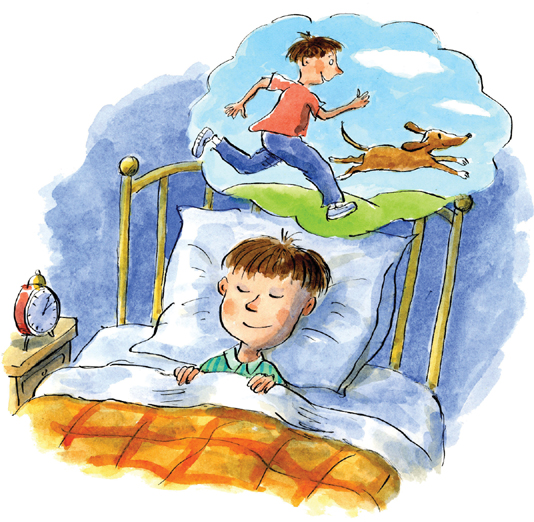
There are two stages of sleep: REM and non-REM sleep. REM stands for rapid eye movement because your eyes make quick movements under your eyelids when youre in REM sleep. REM sleep is when you dream and when your brain is active. Non-REM sleep can be divided into three more stages. Stage N1 is the light sleep that happens right after you fall asleep. Stage N2 is a bit of a deeper sleep, and Stage N3 is when you are in a really deep sleep, your body is still, and your breathing and heart rate slow down.
Different people need different amounts of sleep. There are no special criteria or calculations to figure out exactly how much sleep a person needs to be healthy and to avoid being overtired.
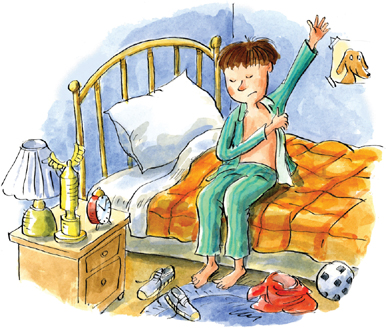
Most adults need about 7 to 9 hours of sleep each night. Newborn babies sleep from 16 to 18 hours in each 24-hour period. Preschool kids generally sleep 10 to 12 hours. Older school-aged children and teenagers need at least 9 hours of sleep.
Sleep cycles change as people get older. Older adults spend more time in lighter sleep.
True or false?
If it takes you less than five minutes to fall asleep, youre probably sleep-deprived. (True.)
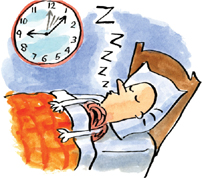
Everybody dreams, but you might not remember dreaming every night. Scientists are not really sure why we dream. Your dreams can be exciting, happy, or scary. They may be related to your feelings, your worries, or things you are excited about.
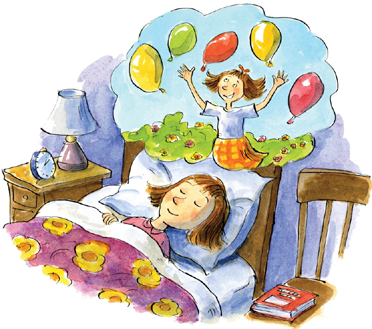
Sometimes you may fall asleep easily and sometimes you may have trouble falling asleep (MT: insomnia). If you have trouble, here are some things that might help:
1) Be active in the daytime (like playing and doing sports) so your body will be tired at night.
2) Make sure your bedroom is dark, quiet, and at a comfortable temperature.


